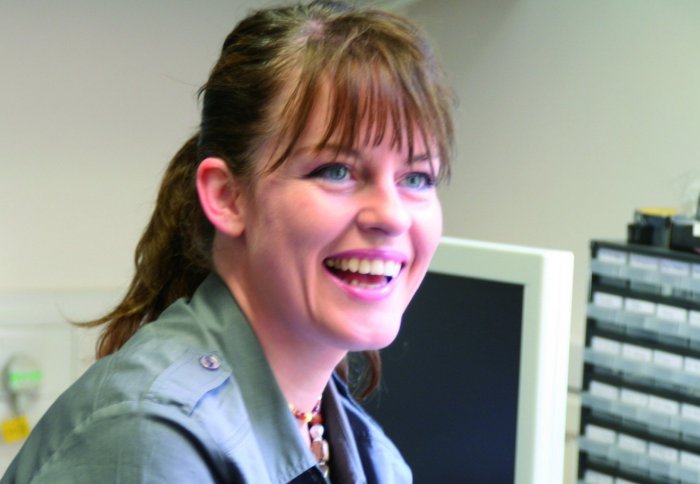New project to ensure information gathered by sensors is reliable
by Colin Smith

Professor Julie McCann to co-lead new research project
Researchers are working on a new £4 million project that will ensure vast sensor networks of the future are dependable.
Professor Julie McCann from the Department of Computing at Imperial is one of the lead collaborators on project called Science of Sensor Systems Software, to make sensor networks more reliable.
Colin Smith caught up with Professor McCann to find out more about sensor networks and why we should sit up and take notice of this new project.
What are sensor networks and why should we care about them?
These are groups of devices that work together to gather information and monitor the environment that they are placed in. The beauty of these networks is that they can gather information in real-time from many different sources to build up a very detailed picture. They are normally hidden from view, so we may not realise their importance, but sensor networks are vital in helping to monitor almost everything - from our health, to our water supply and our energy consumption.
Will these sensor networks play an even bigger role in the future?
The world we are moving towards will be much more interconnected and sensor networks will play a bigger part in this reality.
For example, driverless vehicles will use sensor networks to glean information about the environment they are travelling through to ensure that passengers arrive safely at their destination.
You probably have already heard about the Internet of Things, where objects such as home appliances will be embedded with sensors so that data can be shared wirelessly. This could mean that some of the routine chores and decisions could be left to smart technology, which could improve a range of areas such as reducing our energy consumption or managing our shopping seamlessly.
There is also a big move by policymakers to make cities smarter. This means that sensors could help to monitor and regulate anything from traffic flow to our water supplies. The benefits could be enormous for consumers with cost and efficiency savings, not to mention environmental benefits.
Are there any challenges with this technology?
Currently, we don’t have a unifying approach for analysing that the data gathered by these sensors is accurate, reliable and timely.
What does this new project hope to achieve?
We are going to develop the principles, computer models, techniques and finally a framework for analysing how these sensor networks will operate in a range of scenarios.
This will help us to understand how these sensor systems will, for example, behave when their battery runs down or when the temperature is too high for them to operate optimally or when they come up with contradictory answers.
Knowing their weak spots, both physical and logical, will help engineers to design more robust sensor systems, which will always operate at their optimal level.
This will ensure that the data collected by sensors is accurate, so that the day-to-day decisions that these technologies will be making on our behalf is right – every time!
Who will you collaborate with on this project?
The project is funded by the Engineering and Physical Sciences Research Council, and it is expected to run until 2021. I will be working with a crack team of researchers from the Universities of Glasgow, Liverpool and St Andrews. It is a really exciting project and we can’t wait to get started.
Article supporters
Article text (excluding photos or graphics) © Imperial College London.
Photos and graphics subject to third party copyright used with permission or © Imperial College London.
Reporter
Colin Smith
Communications and Public Affairs